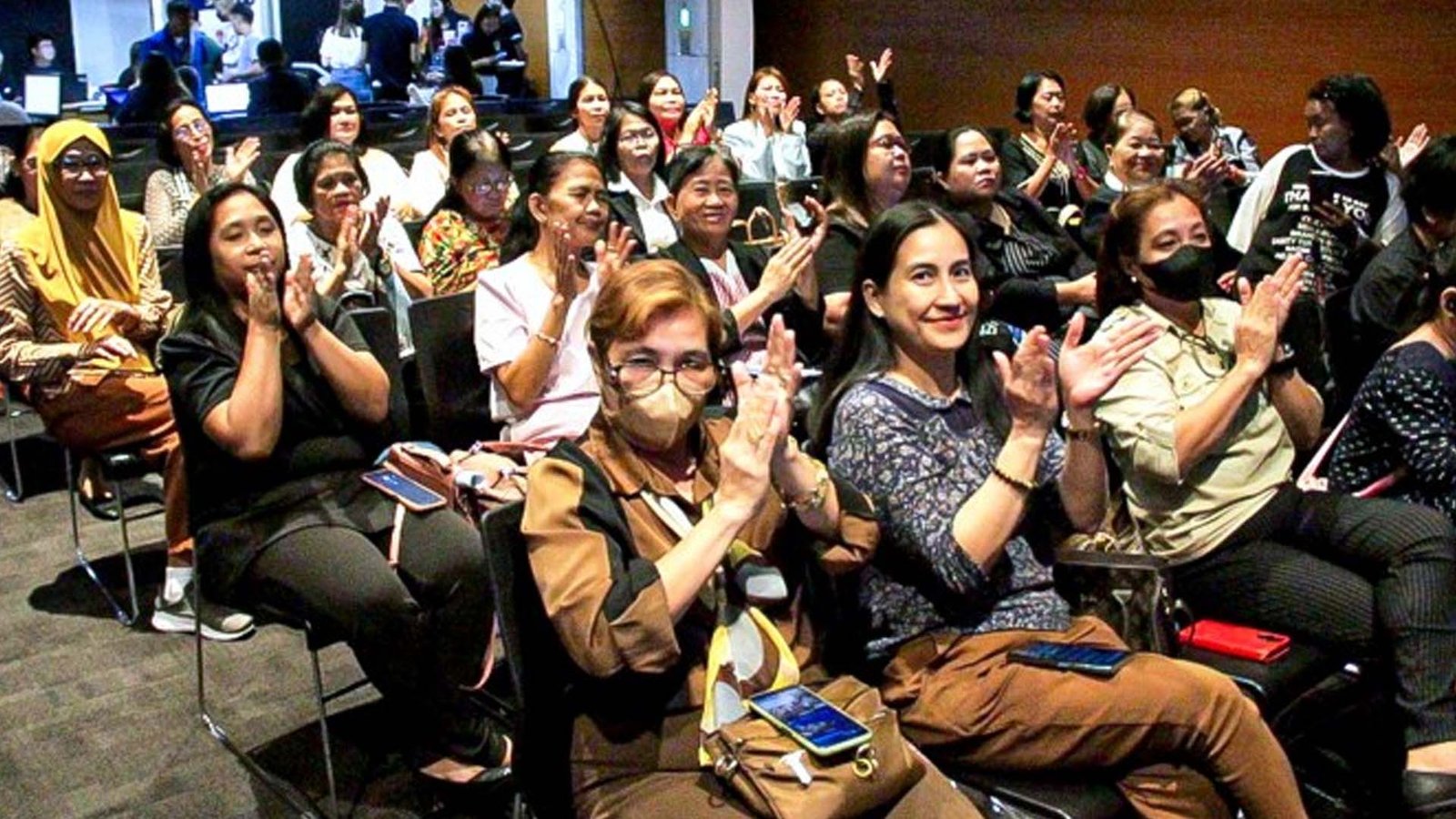Sometimes, Catholics need a reminder to speak out and not stay silent in the face of injustice and oppression
Jul 16, 2025

Demonstrators take part in a Labor Day rally in Manila on May 1, 2023. Filipino labor groups and activists have been pushing for a decent living wage for workers in the public, private and informal sectors amid soaring inflation and price hikes. (Photo: AFP)
By Ruben C. Mendoza
The Catholic Bishops’ Conference of the Philippines (CBCP) recently issued a pastoral letter with the title, “‘…the LORD requires of you: to do justice and to love goodness, and to walk humbly with your God’ (Micah 6:8).”
In it, the Filipino bishops offered their reflections on three key issues: the violence in Gaza, the just wage, and the impeachment process of Vice President Sara Duterte. The first is of international importance, and the other two are local concerns.
“War spares no one, and there is no victory in war. The innocent suffer the most,” the pastoral letter said.
Despite the claims of Israel’s Prime Minister Benjamin Netanyahu that Israel’s war is against Hamas, the hard reality, based on the first independent survey of deaths in the Israel-Hamas war from October 2023-January 2025, is that out of the almost 84,000 deaths, “more than half of the people killed were women aged 18–64, children or people over 65.”
The bishops condemned the “weaponization of starvation” against the people of Gaza and appealed for an immediate ceasefire.
As Agnès Callamard, the secretary general of Amnesty International, stresses, “As the occupying power, Israel has a legal obligation to ensure Palestinians in Gaza have access to food, medicine, and other supplies essential for their survival. Instead, it has brazenly defied binding orders issued by the International Court of Justice in January, March, and May 2024, which called for the unimpeded flow of aid to Gaza. Israel has continued to restrict the entry of aid and impose its suffocating, cruel blockade and even a full siege lasting nearly eighty days.”
The Filipino bishops emphasize the importance of building “a sustained culture of peace” in Palestine. However, this will be a herculean task since many of the Palestinians have known nothing else in their life but violence, particularly in terms of their relationship with Israel.
The bishops’ plea for Gaza underscores the importance of addressing both national and international issues. As human beings, the unimaginable suffering of the Palestinian people should bother us. The violence must stop now. Peace needs a chance.
In light of the failed efforts in the Philippine legislature to enact a wage increase, the second issue that concerns the bishops is the question of just wages and the dignity of work, both of which are central to the Catholic social tradition.
The first social encyclical, Rerum Novarum, issued in 1891 by Pope Leo XIII, emphasizes the right to work and the need for a wage that allows a worker to support their family. The Filipino bishops, in their pastoral letter, rightly note that Filipino workers are not receiving living wages.
Starting July 18, in Metro Manila, the daily minimum wage for workers will be 695 pesos (around US$12.30 based on the current exchange rate). According to IBON Foundation, a non-stock, non-profit development organization, the family living wage for a family of five in the capital is 1,220 pesos as of June.
It means there is a wage gap of 525 pesos between the legal minimum wage and the family living wage. The national average wage gap is 742 pesos, according to IBON. The plight of Filipino workers, unfortunately, bears a resemblance to that of workers worldwide, especially in the Global South.
The Filipino bishops recognize that the church must lead by example in the question of just wages. That means that the church must ensure “fair salaries, benefits and dignified treatment of workers in our church institutions.”
The sad fact is that too many church institutions fail in this regard. The oft-cited reason for this is that the church, as a nonprofit organization, lacks sufficient resources. While this is true, churches must learn to raise the necessary funds to provide adequate salaries to their employees.
Furthermore, the pastoral letter urges a dialogue among employers, employees, and the government to address the issue. This dialogue should not only consider what defines a living wage but also challenge the neoliberal economic framework that shapes discussions of wages. Such an ideological framework is deeply problematic, as Pope Francis rightly pointed out, since neoliberalism favors profit over the common good.
The pastoral letter’s third concern was the accountability of public officials and the promotion of good governance. The bishops are justifiably disturbed by the artificial delay, so to speak, in the Senate impeachment trial of Vice President Sara Duterte.
Instead of fulfilling their constitutional mandate, the Senate president and other senators, who are allied with her and her father, former President Rodrigo Duterte, have placed one obstacle after another in the political process.
Asserting the impeachment process as a legitimate democratic mechanism, the bishops have called on the people to combat moral indifference, listen to all sides, and foster a culture of engaged citizenship.
As public officials, senators are supposed to uphold the Constitution. Regrettably, political considerations and loyalty appear to be more important to them than seeking transparency and accountability, which are hallmarks of good governance.
More than three months ago, I wrote an op-ed in UCA News, criticizing the pastoral letter of Archbishop Romulo Valles of Davao for its uncritical support of the Dutertes. Valles had misused Micah 6:8.
I wrote then, “When Micah called for justice, it was for the downtrodden and not the powerful. It was for the victims of society, not the Dutertes and not even the Marcoses.”
The present pastoral letter used the same (misused) text for its title, a usage that does justice to its biblical context and stands in contrast to Valles’ use of it. The prophets of Israel denounced the injustices of their time and called on the people to be faithful to God’s covenant. What the CBCP does in this pastoral letter aligns with the church’s prophetic mission.
It is easy to ignore socio-political issues when we consider them not affecting us. But we need to remember that we are our sisters’ and brothers’ keepers. The pastoral letter challenges the Filipino Catholics to contribute to the building of a just and peaceful society in their own ways.
Sometimes, Catholics need a reminder to speak out and not stay silent in the face of injustice and oppression. I understand how we can become numb to the violence around us. Still, I hope we will allow the Spirit to unsettle us, inspiring and strengthening our commitment to help alleviate the suffering of others.—ucanews.com











